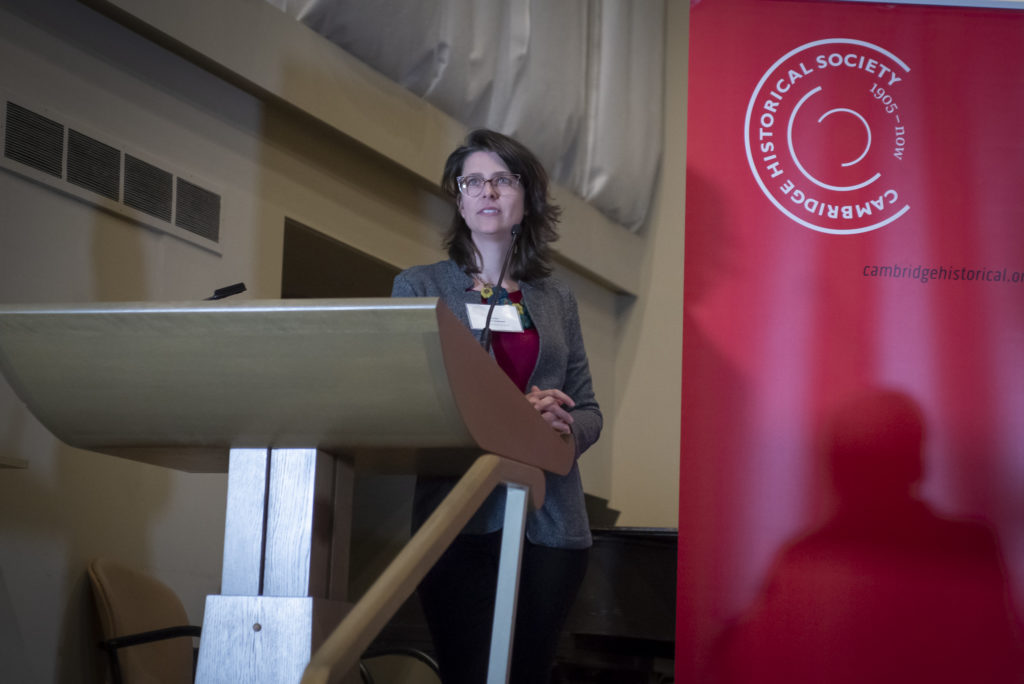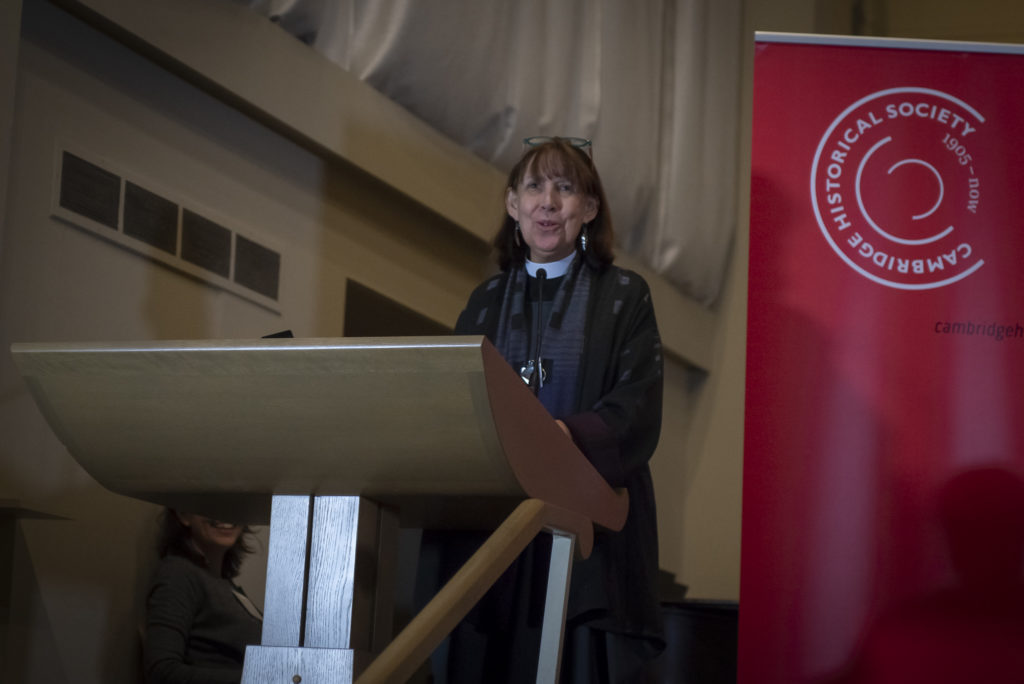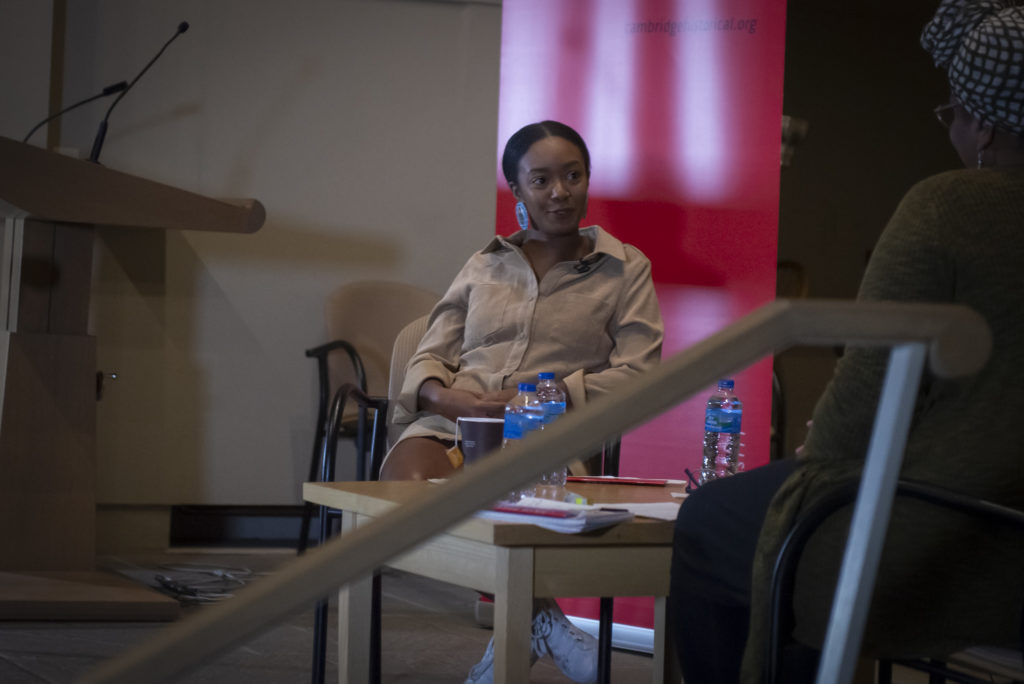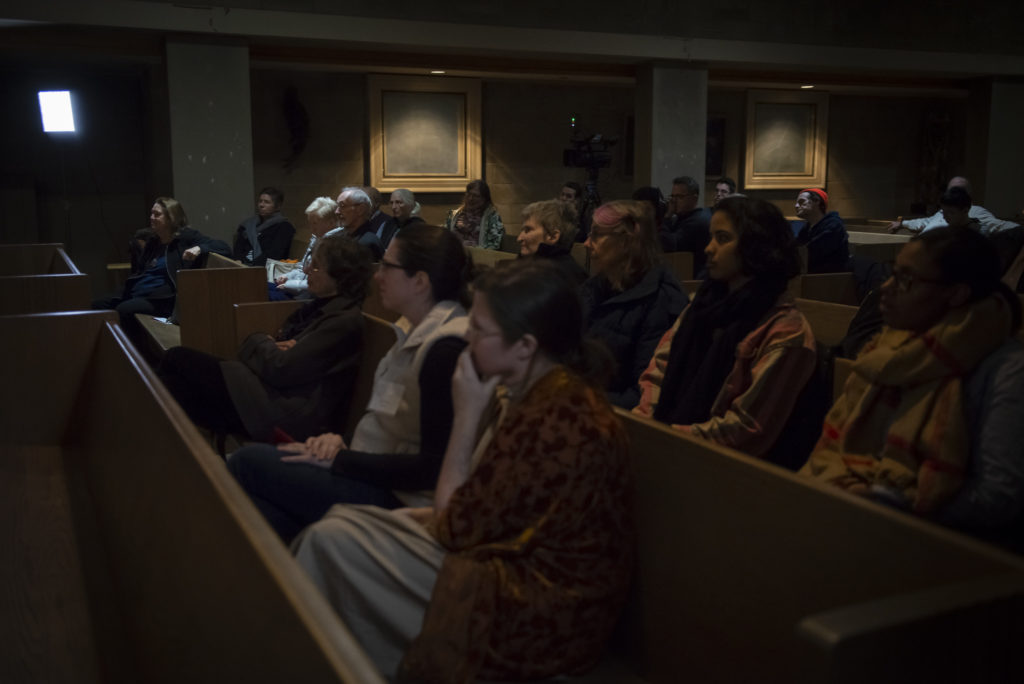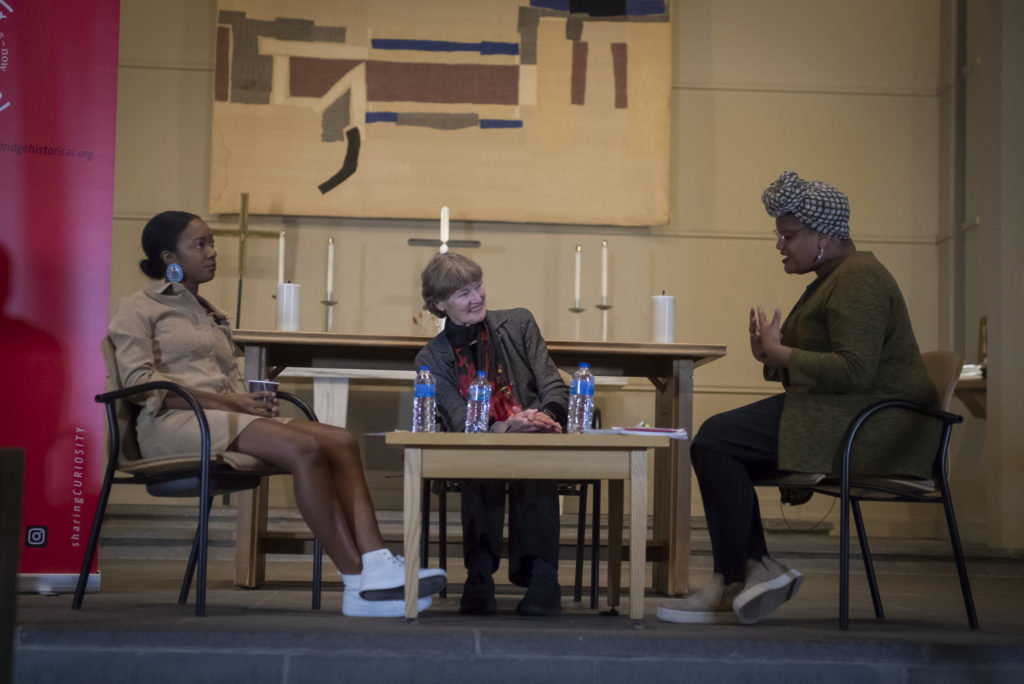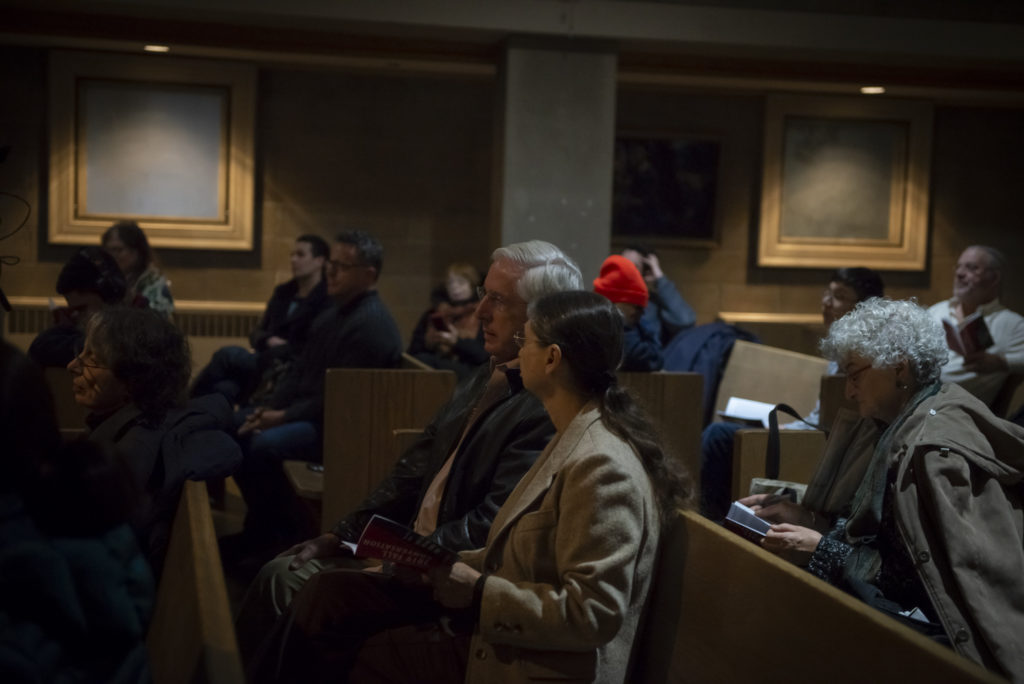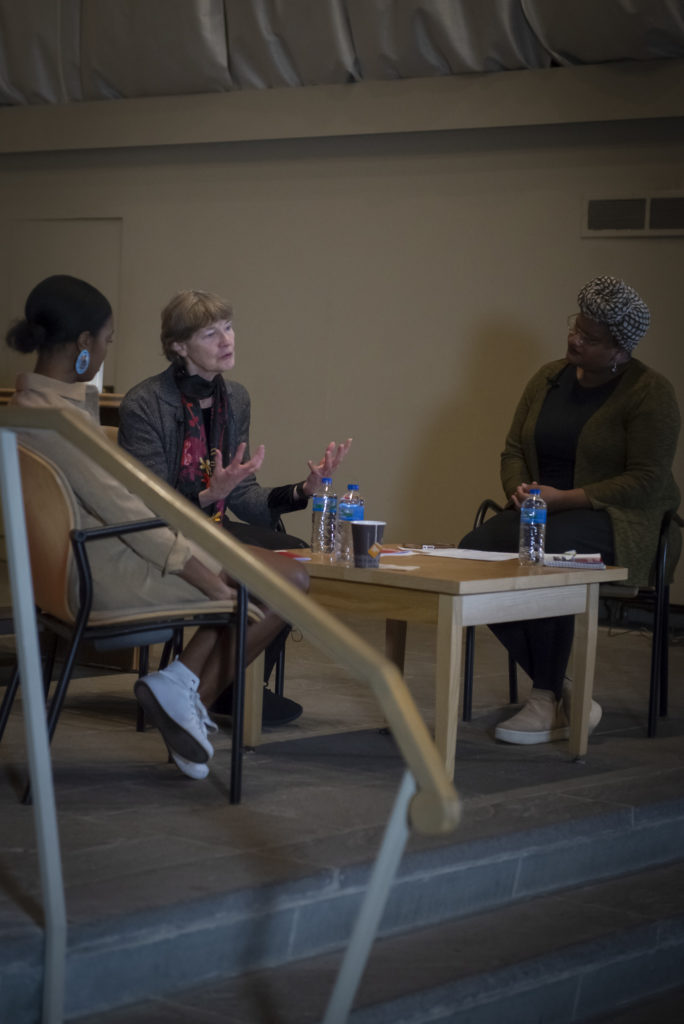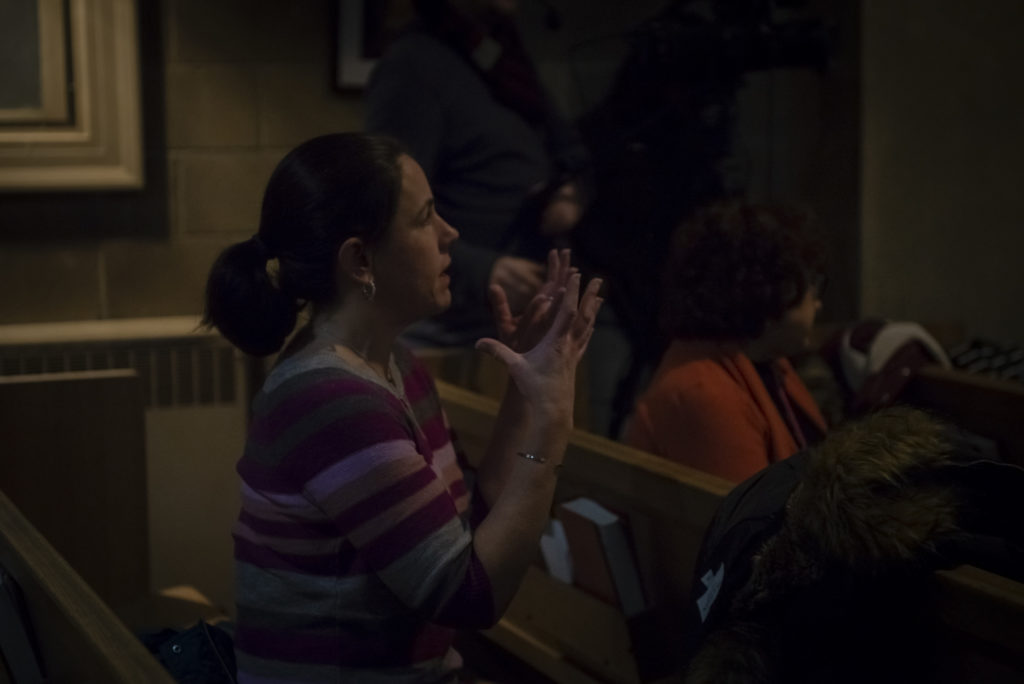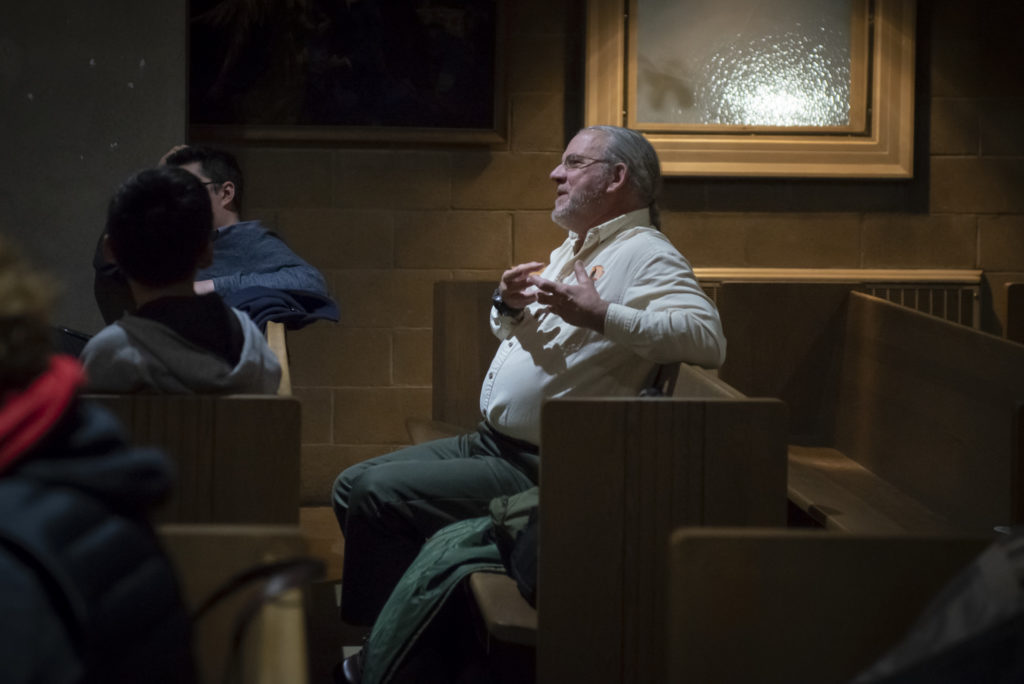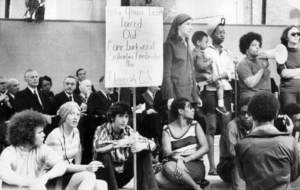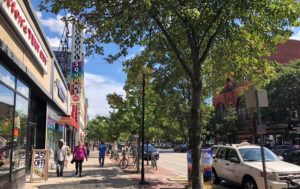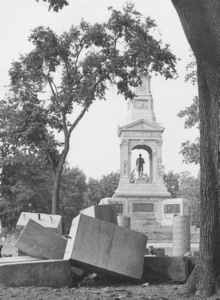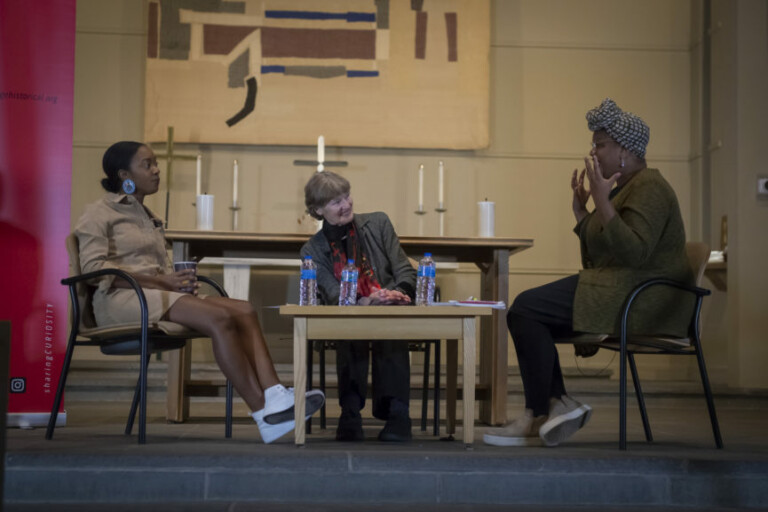
Recap of 11/13/2019 Fall Conversation
Fri April 11, 2025
On November 13, 2019, Cambridge Historical Society hosted Fall Conversation 2019: How Can We Make Change Here? at University Lutheran Church. Speakers Cheyenne Wyzzard-Jones and Dr. Charlotte Ryan joined moderator Mary McNeil to discuss activism and how they use education as a tool to engage others. This event concluded the Society’s 2019 programs centered on the question “How Does Cambridge Engage?”
UniLu pastor Kathleen O’Keefe Reed welcomed the audience and introduced them to the history of the church. As she explained, the history of rule-breaking is embedded in the very fabric of the church building, dating to its founding in the 1920s. From its unique architectural quality to its commitment as a sanctuary space, the University Lutheran Church has acted as a “steward for [supporting] the greater well-being of Cambridge.”
Cambridge Historical Society executive director Marieke Van Damme reflected on the programs the Society has held throughout 2019, with topics covering activism and engagement in the digital age, how we engage with so-called “difficult” history, as well as how place influences and the ways we connect with activism. She then introduced moderator Mary McNeil, PhD candidate in American Studies at Harvard University. Mary introduced speakers Cheyenne Wyzzard-Jones, raised in Cambridge and today a co-founder of Women of Color in Solidarity, and Dr. Charlotte Ryan, who attended Radcliffe College in the 1960s-70s and is today a professor of sociology at University of Massachusetts Lowell.
Cheyenne and Charlotte spoke about their connections to Cambridge and how their time here shaped how they became involved with activism work. Cheyenne remarked on the ways that arts and culture, as a form of resistance, have served in building community pride and influencing the rest of the world. Charlotte reflected on her time living here as a student and how the price of housing pushed out long-time residents. She felt a significant divide from the “imposing institutions and its impact on people.” Cheyenne echoed this sentiment as she described the spaces she felt most at home, such as the Cambridge Community Center, whereas many others no longer exist.
Mary asked the speakers to discuss how they became involved in community activism. According to Charlotte, “You always have to start somewhere that feels like home to you. You look around and see your strengths, weaknesses, and resources. What can I do with who I am? Find what feeds you as well as something beyond yourself.” For her, this has manifested through Rhode Island-based projects centered on domestic violence and welfare. She counts humility and respect as essential to the organizing process.
Cheyenne’s work has focused on identifying community needs and resources, especially as it relates to the Black Lives Matter movement. Cheyenne explained that “Cambridge was one of the first high schools that had restorative and transformative justice education,” and that she was among the first students to receive that training. She continues to do transformative justice work in New York, focused especially on women of color.
For Charlotte and Cheyenne, community means having conversation and finding the people you can call on for help. It is also necessary for people who do not usually talk together to find ways to connect. As Charlotte expressed, “The hunger we have is a hunger for community—places where we can talk with each other about silly things before talking about serious things.”
In finding ways to join local causes, Charlotte implored the audience to ask themselves, “What are our options under pressure? Where are the spaces that, if we could all work together and push our energy, we would have impact?… How do we take care of each other? Reflecting on one’s history and community context is so central to how we go ahead.”
During the Q&A, one audience member asked how we can create opportunities to build intergenerational community. Cheyenne shared her own experiences on the necessity of supporting community elders, especially for those at risk from steep housing costs. Charlotte remarked on the importance of making space for all generations to hold dialogue.
Another audience member asked how to reach out to communities with whom you don’t usually have contact or might be unwilling to listen. Charlotte answered that “this is a life-long project that involves everybody in this room. It involves finding ways to speak with people who don’t agree with you… One of the ways is starting with personal stories or with facts.” Both Charlotte and Cheyenne encouraged the audience to identify people on whom they can rely to help them feel safe.
The Cambridge Historical Society thanks our speakers and moderator for engaging the audience in a thought-provoking, reflective dialogue on how we can make change in our communities. Many thanks to the University Lutheran Church for hosting the event, 22-CityView for filming, and Marissa Williams on photography. We thank Capital One for providing refreshments, our corporate sponsors, designers Jan Ferrara and Mary MacFarlane, and the many volunteers who helped in preparing this event.
For more information on activism and civic engagement in Cambridge, please check out our Resource Guide, Fall Conversation 2019 Conversation Guide, and recap of 2019 programs.

